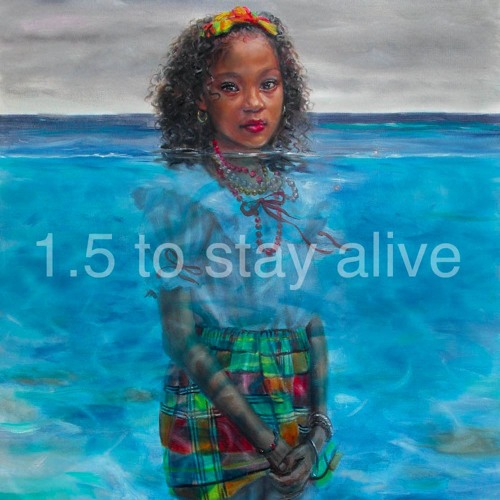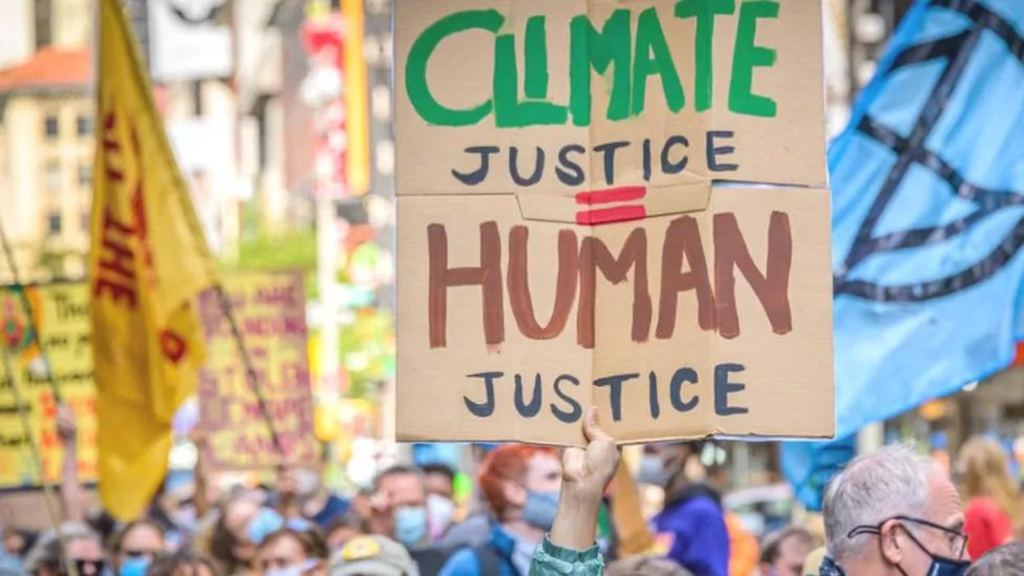Citing a need to build regional partnerships in the continued fight for climate justice, advocate and manager of the Climate Change and Disaster Risk Reduction Programme at Caribbean Natural Resources Institute (CANARI), Dr Ainka Granderson is collaborating with Panos Caribbean on the Caribbean Climate Justice Alliance (CCJA).
Speaking on the Global Yaadie Podcast, Dr Granderson, a Senior Technical Officer and a climate adaptation specialist with expertise in community-based adaptation, said CCJA is a step in the right direction to promote further inclusivity among Caribbean climate advocates.
She also explained to podcast host Dainalyn Swaby that over 20 allies from across the region have joined together as a part of the climate justice alliance.
This initiative, with the support of Open Society Foundations, is the first of its kind in the Caribbean.
“We realised that there have been several different efforts by civil society organisations, non-governmental organisations (NGOs), academics, creatives and media, and various individual activists and champions around climate advocacy, and awareness raising.”
“And while these have been quite impactful, like the well-known 1.5 Stay Alive campaign by Panos Caribbean and its partners, there was a real need to bring together these many smaller and often disconnected efforts to leverage synergies, enhance knowledge sharing, and facilitate collective action to build a strong regional movement and have much more impact,” Granderson shared.

“Last year, we tested the waters by bringing together 20-30 key organisations and champions working on different aspects of climate justice in the region and asked them whether they thought it was valuable to set up an alliance and we got an extremely positive response. So we’ve gone ahead and launched the Caribbean Climate Justice Alliance as of March 2022, which we’re convening in collaboration with Panos Caribbean, and trying to rally others to join us.”
The motive behind this alliance is simple, Dr Granderson said. There is an undeniable gap across the region, which points to the need to amplify the voices of climate advocates in the Caribbean.
When questioned on the reason to “zero in on climate justice,” Dr Granderson told Swaby that addressing the climate change crisis will always be considered urgent. However, one cannot deny that there is inequality in the way in which climate action is being viewed, Dr Granderson pointed out.
“I think the reason we’re calling for climate justice much more strongly than we have before is that when we take climate action, we need to ensure that the outcomes from that action are fair and just, and we’ve been seeing that a lot of times when we go to take actions whether to put policies in place or to do projects that we’re not taking into account the most vulnerable groups and communities.”
At the same time, the climate advocate said the disparities among Caribbean islands and other Small Island Developing States (SIDS) cannot be ignored.

“I guess another aspect of the justice thing is the unfairness, the fact that Caribbean islands and many other small islands and developing countries are not contributing that much to the climate change issue. They don’t have that much emissions. But despite that, we’re the ones who are facing the brunt of the impacts.”
Since its launch, Dr Granderson said that the CCJA has carried out focus groups and dialogues with climate advocates across many Caribbean countries, including Antigua and Barbuda, Jamaica, Trinidad and Tobago, and Barbados. The results of this research will be shared in short order, Dr Granderson said on the Global Yaadie Podcast.
While explaining how CANARI along with its allies intends to utilise the results of this research, Dr Granderson said the alliance intends to act as a “watchdog” for climate justice across the Caribbean.
“We almost want to be able to play more of a watchdog role, to really sort of track the progress and outcomes from what’s happening, and be able to call our governments to account to make sure that they’re investing in the right way to be able to get us on the path that we want.”
This story was produced through the collaborative efforts Climate Tracker and Young People for Action on Climate Change, both supported by Open Society Foundation.